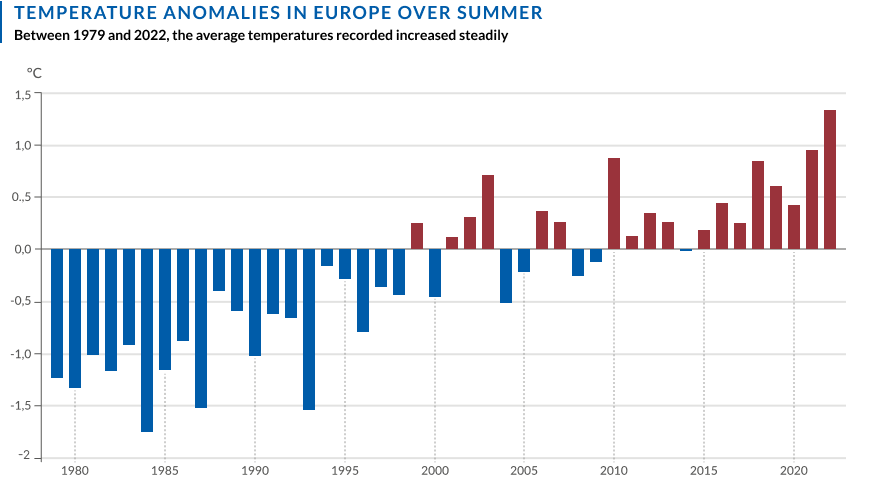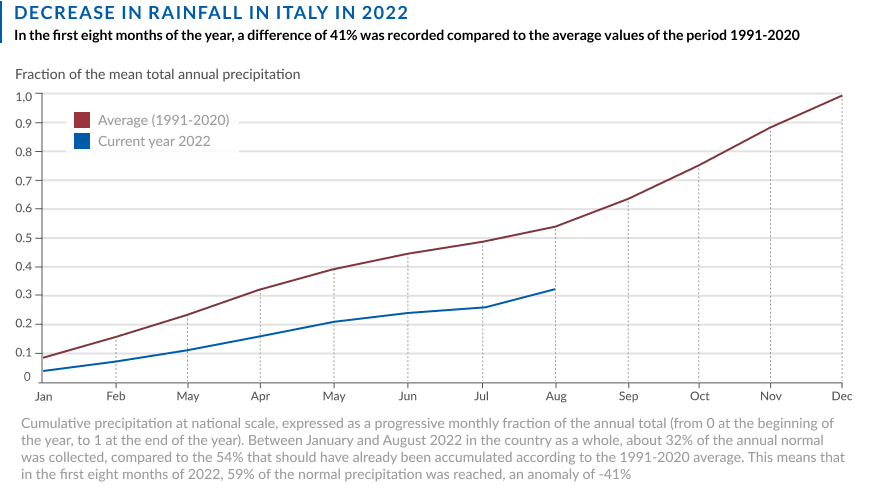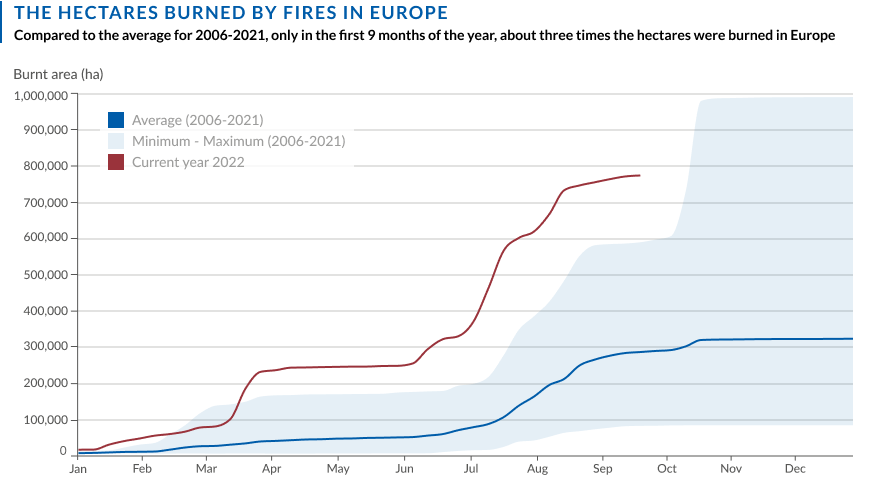On average, summer 2022 was the hottest ever recorded in Europe, reports Copernicus, the European Union's Earth Observation Programme, which, among other things, conducts environmental monitoring on a global scale. According to data published by the service, average temperatures in Europe between June and August were 0.4 °C higher than in 2018, when the previous record for the hottest summer was set.
The Copernicus report states that the month of August was the hottest and driest in Europe - and the third hottest globally - since records began, exceeding the previous record in 2018 by 0.8°C. Temperatures recorded in several European cities have been above average since mid-June, with peaks that usually aren't recorded until July onwards, when the highs of the summer season are usually expected across much of the continent.
«An intense series of heatwaves across Europe paired with unusually dry conditions, have led to a summer of extremes with records in terms of temperature, drought and fire activity in many parts of Europe», summarised Copernicus researcher Freja Vamborg.



